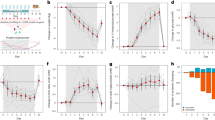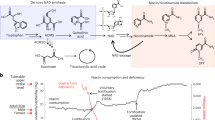Abstract
Objectives: Study was conducted in order to investigate the association of vitamin E intake and other factors with plasma α-tocopherol concentration in a non-smoking Mediterranean population.
Design: A cross-sectional study was conducted in a subsample of a representative sample of the Catalan population.
Subjects: Sample size was 143 men and women, aged between 18 and 75 y, and final response rate reached 61.9% of the initial sample.
Interventions: Serum alpha-tocopherol concentration standardized by serum total lipids was used as a proxy of the nutritional status of vitamin E. Vitamin E intake and alcohol consumption were estimated by a replicated 24 h recall method. Dietary data were collected in two different periods, winter and summer, in order to account for seasonal variation in nutrient intake, and were corrected for random within-person variability in order to account for day-to-day variation in nutrient intake. Multivariate linear regression models were fitted in order to estimate the determinants of serum α-tocopherol concentration.
Results: In this population study, for each one mg increase in vitamin E intake, serum α-tocopherol concentration increased, on average, 0.66 micromol/L, after adjusting for age, gender, Body Mass Index (BMI), alcohol consumption and energy intake. BMI also influenced significantly serum α-tocopherol concentration, whereas alcohol intake, age and gender did not show significant associations with serum α-tocopherol.
Conclusions: The study showed that vitamin E nutritional status was associated to vitamin E intake and BMI in non-smokers.
Sponsorship: This study was supported by a research agreement between the Department of Health of the Autonomous Government of Catalonia and the Bosch Gimpera Foundation of the University of Barcelona (Contract 2415/95).
This is a preview of subscription content, access via your institution
Access options
Subscribe to this journal
Receive 12 print issues and online access
$259.00 per year
only $21.58 per issue
Buy this article
- Purchase on Springer Link
- Instant access to full article PDF
Prices may be subject to local taxes which are calculated during checkout
Similar content being viewed by others
Author information
Authors and Affiliations
Rights and permissions
About this article
Cite this article
Gascón-Vila, P., Garcia-Closas, R., Serra-Majem, L. et al. Determinants of the nutritional status of vitamin E in a non-smoking Mediterranean population. Analysis of the effect of vitamin E intake, alcohol consumption and body mass index on the serum alpha-tocopherol concentration. Eur J Clin Nutr 51, 723–728 (1997). https://doi.org/10.1038/sj.ejcn.1600472
Received:
Revised:
Accepted:
Issue Date:
DOI: https://doi.org/10.1038/sj.ejcn.1600472



